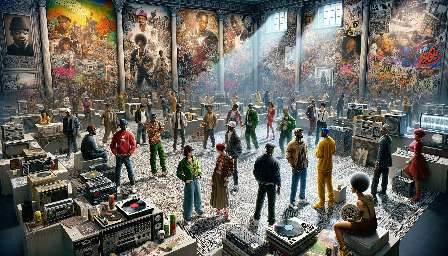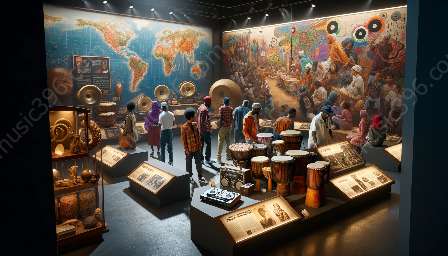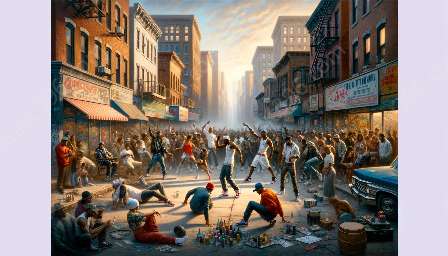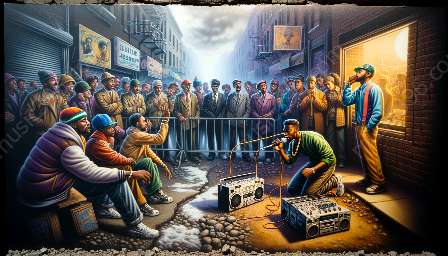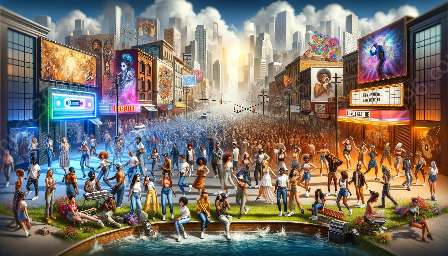Hip-hop music and culture have served as a powerful voice for addressing social and economic inequality, reflecting the urban environment and providing a platform for marginalized communities to express their experiences. This topic cluster explores how hip-hop's lyrical content, themes, and activism contribute to addressing these issues, its role in the global musical landscape, and the influence of urban culture on the genre.
The Role of Hip-Hop in Addressing Social and Economic Inequality
Hip-hop has long been a tool for social and economic activism. Its lyrics often convey the lived experiences of individuals facing inequality, discrimination, and injustice. Through storytelling, rapping, and poetry, hip-hop artists shed light on societal issues such as poverty, racial disparity, and systemic oppression.
Furthermore, hip-hop serves as a medium for promoting dialogue and raising awareness about social and economic disparities. It empowers individuals to speak out against injustice and mobilize communities to advocate for positive change. From conscious rap to politically charged anthems, hip-hop's messaging often tackles the root causes of inequality and provides a voice for those who have been silenced by societal norms.
Global Impact of Hip-Hop
As a global phenomenon, hip-hop has transcended geographical boundaries, connecting people from diverse cultures and socioeconomic backgrounds. Its ability to resonate with audiences worldwide has enabled it to become a platform for sharing narratives of struggle and resilience.
By addressing social and economic inequality through its music and culture, hip-hop has become an influential force in shaping global conversations around justice and equity. The genre's reach extends beyond language barriers, making it a tool for promoting solidarity and understanding across borders.
Urban Influence on Hip-Hop
Urban environments serve as the fertile ground from which hip-hop culture emerges. The struggles and triumphs witnessed in urban communities often inspire the themes and messages conveyed through hip-hop music and art.
The realities of urban life, including poverty, crime, and limited opportunities, are often central themes in hip-hop lyrics and visuals. By acknowledging and addressing these challenging circumstances, hip-hop provides a voice for individuals who are grappling with social and economic inequality within urban settings.
Moreover, the interconnectedness between urban communities and hip-hop culture underscores the symbiotic relationship between the genre and its place of origin. Urban landscapes provide the backdrop for hip-hop's storytelling and activism, emphasizing the significant role that urban culture plays in shaping hip-hop's identity and messages.




